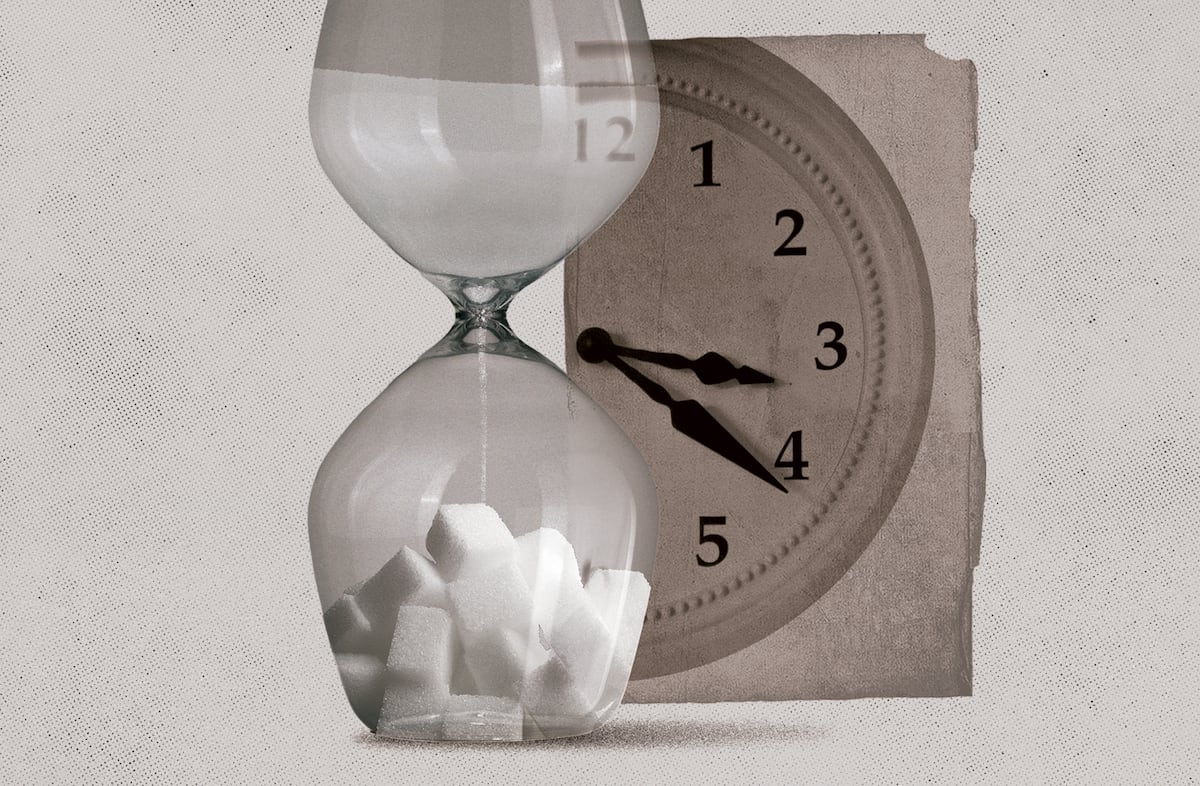
In recent years, significant progress has been made in raising public awareness about the importance of healthy eating, thanks to the efforts of many educators, growing scientific evidence, and the development of more or less reliable tools like nutrition labels. While these advancements represent a major qualitative leap, they may not be enough to fully protect people’s health. “Previously, in nutrition, we talked about what we eat or how we eat. Now we have also added the variable of when,” explains Marta Garaulet, a professor of Physiology and researcher at the University of Murcia. “If we eat poorly and on top of that we eat at the wrong time, the impact on health can be greater.”
Garaulet, regarded as one of the pioneers of chrononutrition, has authored numerous influential scientific articles, including one of the most cited studies in the field of health sciences. This particular study, groundbreaking for being the first on humans to establish a connection between mealtime and obesity, demonstrated that people who ate after 3:00 p.m. experienced less weight loss on a Mediterranean diet compared to those who ate earlier.
In a subsequent study, Garaulet and her team investigated the impact with dinner time. Participants were served spaghetti with tomato sauce and a banana for dinner. For one week, dinner was served an hour before their usual bedtime, while in the following week, it was served four hours earlier. “What we saw was that, the same person, when they ate late, closer to bedtime, had a much lower glucose tolerance,” Garaulet explains.
A recent study led by researchers from Spain’s Universitat Oberta de Catalunya (UOC) and Columbia University in the United States has further reinforced this theory, revealing that consuming more than 45% of daily caloric intake after 5:00 p.m. is associated with elevated glucose levels.
“What is novel about our study is that this effect occurred independently of body weight, fat mass, total caloric intake, or diet composition,” explains Columbia researcher Diana Díaz Rizzolo.
For UOC professor Garaulet, this finding is particularly significant because historically, the link between late eating and poorer health markers has been attributed to lifestyle factors — people who eat later tend to have less healthy habits, including higher consumption of ultra-processed foods, more caloric diets, and higher rates of overweight and obesity. “In this study, although participants who ate late did not differ in total caloric intake compared to those who ate earlier, they showed higher blood glucose levels after a glucose tolerance test,” she notes.
For Manuel Botana, a member of the Diabetes Area of the Spanish Society of Endocrinology and Nutrition (SEEN), this study contributes new data to the growing body of evidence on this subject and reinforces the argument for the need “to educate the population in proper hygienic-dietary habits, such as that food intake should be done at the correct times and not erratically.”
However, he raises two caveats about the research: first, the small sample size; second, the focus on obese individuals with prediabetes or diabetes, without a control group of healthy individuals with normal weight for comparison.
Garaulet, however, disagrees with the latter concern, emphasizing that her own studies, which involved healthy participants, demonstrated that the impact of eating late versus early on health is ”enormous,” regardless of whether the individual has obesity or diabetes.
Consequences of eating late
The reason for poorer glucose tolerance with late dinners remains unclear, although evidence suggests it is linked to disruptions in circadian rhythms caused by delays in eating times. “Our body has a central clock in the brain that coordinates many functions, such as hormone release and nutrient processing, all influenced by light and dark cycles. Eating late at night can disrupt this natural clock, impacting how we regulate glucose during the night,” explains Diana Díaz Rizzolo.
Garaulet adds that recent research on human adipose tissue cultures shows that glucose tolerance is at its lowest around midnight. Additional studies, conducted both in laboratories and with mice, suggest that melatonin — the sleep hormone — interferes with insulin production by the pancreas during the biological night.
“If melatonin levels are high, our body does not have the same capacity to metabolize carbohydrates as when there is no melatonin,” says the expert. “This makes perfect sense, because in our body the night is not for eating, but rather for resting the organs involved in the metabolism of food [liver, pancreas, digestive system and adipose tissue].”
She continues: “At night, melatonin also allows the beta cells of the pancreas to rest, and in the morning they are sufficiently rested to function correctly.”
Botana agrees, noting that eating a large meal late at night results in poor-quality, less restful sleep, which in turn “contributes to deteriorating metabolic control.”
The result? If you have a late dinner one night, there is no immediate harm. However, if this habit becomes frequent, the effects can cascade, leading to “prediabetic or diabetic states,” says Garauler. “It increases the risk of obesity, since this excess of glucose causes nutrients to enter the adipose tissue and cause weight gain.”
For Díaz Rizzolo, the study holds particular significance for people who are overweight or have type 2 diabetes, especially those who tend to eat late. “In these cases, it may be helpful to redistribute caloric intake throughout the day, prioritizing earlier meals. This could improve glucose tolerance and reduce the long-term health risks associated with late eating, such as cardiovascular disease.”
For the general population — although this may vary depending on whether someone is a morning or evening person — Garaulet recommends avoiding eating when melatonin levels are high. To do this, she advises not eating breakfast too early, especially for those with a “night owl” chronotype, as they are still in their biological night and have high melatonin levels. She also recommends eating before 3:00 p.m. (ideally before 1:30 p.m.) and having dinner early, around 8:00–8:30 p.m., ensuring there is at least a three-hour gap between dinner and bedtime. Furthermore, leaving 12 hours between the end of dinner and the start of breakfast gives the body time to mobilize fat rather than store it. Lastly, for those with a sweet tooth, Garaulet suggests it is better to eat sweets in the morning.
Sign up for our weekly newsletter to get more English-language news coverage from EL PAÍS USA Edition
link



:max_bytes(150000):strip_icc()/Best-Condiments-for-Better-Blood-Sugar-According-to-Dietitians-aa44e694e2324a269ad75f1518d40d2f.jpg)

